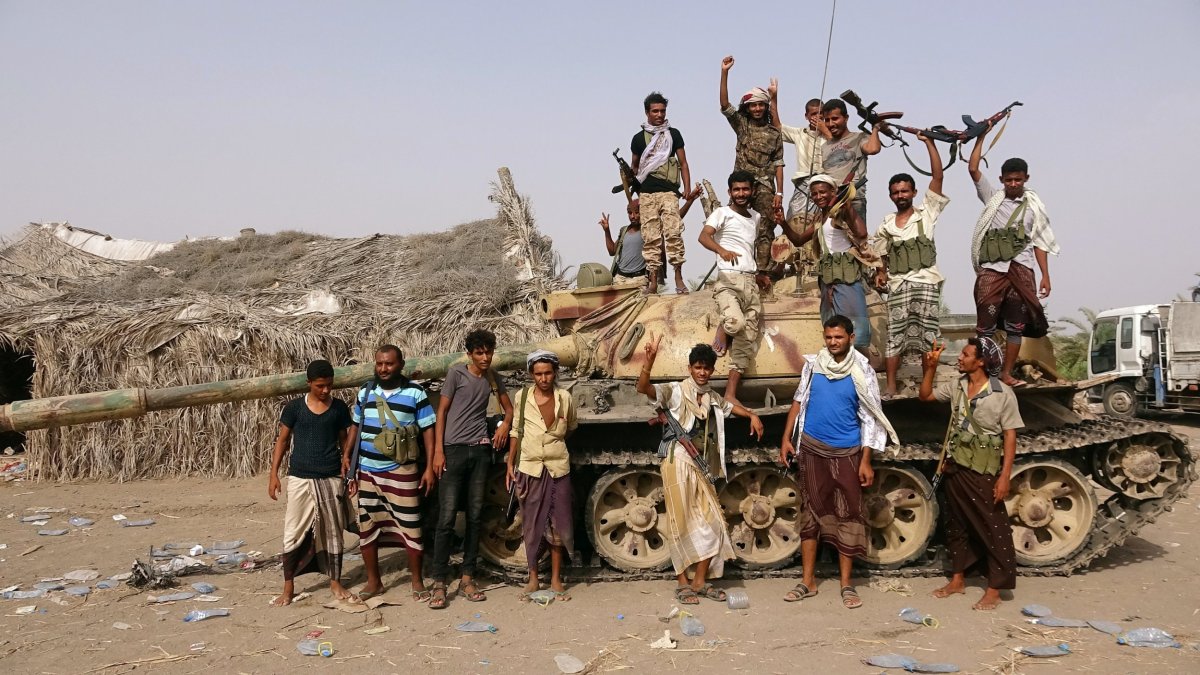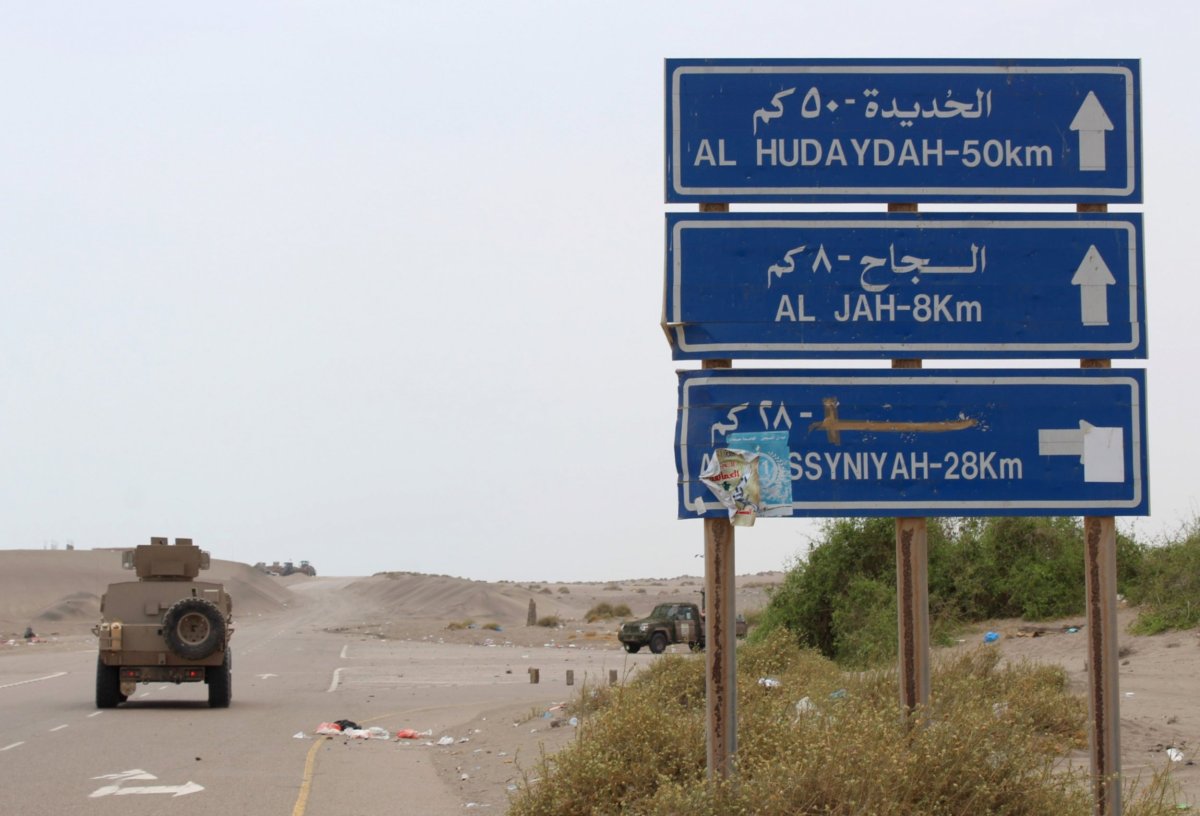Saudi-led forces in Yemen are attacking the vital port city of Hodeidah on the country's western coast, in what could become one of the most pivotal battles to date in the three-year long war.
The assault began on Wednesday after a deadline set by the United Arab Emirates (UAE) for Houthi rebels to leave the city passed. Soldiers massed south of the city are being supported by warplanes and warships, striking Houthi fortifications in and around Hodeidah, Reuters reported. A patchwork force of pro-government Yemeni, tribal, Emirati and Sudanese troops are pressing the attack.
Hodeidah is a vital strategic port for the Iran-backed Houthis, who still control the capital Sanaa, much of the surrounding area and 7 million people—the majority of Yemen's population. The rebels are battling forces loyal to deposed President Abdrabbuh Mansour Hadi, and supported by an Arab alliance headed by Saudi Arabia and the UAE.

The war has plunged the country into a humanitarian crisis, with many Yemenis having lost access to food, fuel and medicine supplies. The vast majority of the aid that does reach the impoverished communities comes through Hodeidah.
But the Saudi coalition says control of the port also allows the Houthis to import weapons, including Iranian ballistic missiles that are regularly fired at Saudi cities. Capturing Hodeidah would give the Arab alliance significant leverage in future peace talks, with the Houthis pushed back from the coast and beseiged inland.
Since entering the war in 2015, the Saudi coalition has relied on airstrikes to degrade Houthi infrastructure and military units. For the Saudis—the leading regional Sunni power—the presence of an Iranian-aligned Shiite movement on its southern border is an unacceptable strategic risk.
This is the first time the alliance has attempted to storm such a well-defended city, and its outcome will have enormous ramifications for the course of the conflict. For both Riyadh and Washington, the war in Yemen is vital in rolling back expanding Iranian influence in the Middle East.

The United Nations and Red Cross have pulled staff out of the city ahead of the operation, named "Golden Victory." In a statement last week, the Red Cross said its activities "have been blocked, threatened and directly targeted in recent weeks, and we see a vigorous attempt to instrumentalise our organisation as a pawn in the conflict." A Lebanese Red Cross employee was killed in the southwestern city of Taiz by unidentified gunmen in April.
The city's 600,000 people are at immediate risk, while millions more will face further shortages if the pro-government troops are victorious. More than 22 million Yemenis already require international aid, over a third of which are close to starvation, according to the United Nations. At least 10,000 people have died since the war began.
The Arab alliance is being supplied with weapons and logistical support from the U.S. and the U.K. This week, American lawmakers called on Secretary of Defense Jim Mattis to avert the potentially "catastrophic" assault on Hodeidah. However, reports suggest the U.S. military is actually expanding its support for the attackers, providing enhanced intelligence to help direct airstrikes.
In a statement broadcast by Yemeni state television, the exiled government called the operation a "turning point" in the battle against the rebels, who it alleges are beholden to foreign agendas. "The liberation of the port is the start of the fall of the Houthi militia and will secure marine shipping in Bab al-Mandab strait and cut off the hands of Iran, which has long drowned Yemen in weapons that shed precious Yemeni blood."
Houthi forces have launched attacks on shipping in the Bab al-Mandab strait, a vital route carrying cargo between the Middle East and Europe via the Suez Canal.
Updated | Statement from the Red Cross.
Uncommon Knowledge
Newsweek is committed to challenging conventional wisdom and finding connections in the search for common ground.
Newsweek is committed to challenging conventional wisdom and finding connections in the search for common ground.
About the writer
David Brennan is Newsweek's Diplomatic Correspondent covering world politics and conflicts from London with a focus on NATO, the European ... Read more
To read how Newsweek uses AI as a newsroom tool, Click here.








